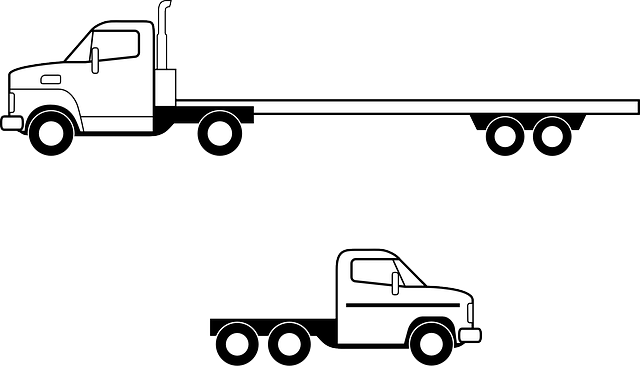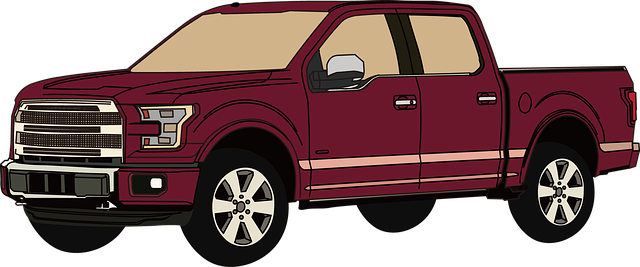Small fleet operators face unique risks like higher liability and cargo losses. They should assess specific gaps in coverage, such as physical damage protection for vehicles and specialized cargo protection. Comprehensive fleet insurance should include liability, cargo, and physical damage coverage tailored to each vehicle's needs. Top-rated trucking insurance with multi-truck coverage options offers robust risk management. By selecting a plan with these features, operators enhance operational resilience and financial security.
Securing the right coverage for your small fleet is a cornerstone of successful operations. Understanding the unique needs of your vehicles and cargoes is paramount. This article guides you through evaluating your fleet’s specific risks and operational requirements, exploring key components of comprehensive fleet insurance, and identifying top-rated providers. Learn about tailored policies, multi-truck coverage options, and more to maximize protection and optimize costs for your small fleet operators. Discover the best coverage solutions, from liability to cargo protection plans, to ensure peace of mind on the road.
Evaluating Your Small Fleet's Unique Needs

When evaluating insurance needs for your small fleet, it’s crucial to step back and understand the unique risks and requirements that come with operating multiple vehicles. Unlike single-vehicle owners, small fleet operators face distinct challenges such as exposure to higher liability due to increased on-the-road time and potential cargo loss or damage across multiple trucks. This calls for more than a one-size-fits-all approach; you need comprehensive fleet insurance tailored to these specific needs.
Identifying your fleet’s specific coverage gaps is key. For instance, top-rated trucking insurance might offer better protection against physical damage to your vehicles, while specialized cargo protection plans can safeguard your goods from loss or damage in transit. Additionally, ensuring adequate liability coverage is essential to protect against potential claims arising from accidents involving your fleet. These tailored fleet policies will help you secure the best coverage for your small fleet operators, providing peace of mind and financial security.
– Assessing risk factors and specific operational requirements

Securing the best coverage for small fleet operators involves a meticulous understanding of risk factors and operational nuances. Before purchasing insurance, fleet managers must assess their unique challenges. This includes evaluating driver safety records, vehicle maintenance practices, routing patterns, and loading procedures, among other variables. Identifying these risks is key to obtaining comprehensive fleet insurance that addresses specific needs, such as top-rated trucking insurance or small fleet liability coverage.
Comprehensive fleet insurance should encompass various protections, including physical damage insurance for vehicles, cargo protection plans to safeguard goods in transit, and tailored policies that cater to the multi-truck coverage options required by larger fleets. By thoroughly understanding these operational requirements, small fleet operators can ensure they have the right balance of liability, cargo, and physical damage coverage, thereby minimizing financial exposure and maximizing peace of mind on the road.
– Understanding the differences between types of vehicles and cargoes

Small fleet operators often face unique challenges when it comes to insurance. Understanding the differences between various types of vehicles and cargoes is crucial in securing the best coverage. Each vehicle, from trucks to vans, has distinct needs due to varying use cases and risk profiles. For instance, a delivery van navigating city streets faces different hazards than a long-haul truck traversing highways. Similarly, transporting perishable goods requires specialized cargo protection plans, while hauling hazardous materials necessitates specific liability coverage.
Comprehensive fleet insurance should cater to these nuances, offering tailored policies that encompass physical damage insurance for all vehicles and comprehensive small fleet liability coverage to protect against claims related to accidents, property damage, and injuries. Top-rated trucking insurance providers understand the importance of multi-truck coverage options, allowing operators to manage risks efficiently across their entire fleet. By selecting a plan that aligns with these specific needs, small fleet operators can ensure they have the right protection in place, ultimately enhancing their operational resilience and financial security.
Key Components of Comprehensive Fleet Insurance

For small fleet operators, securing comprehensive fleet insurance is paramount to mitigate risks and ensure operational continuity. The best coverage should encompass several key components designed to protect against diverse threats. Top-rated trucking insurance policies typically include a robust mix of liability coverage, ensuring financial protection in case of accidents or damage to property, and cargo protection plans that safeguard the value of transported goods. Physical damage insurance is also essential, covering repairs or replacements for vehicles involved in incidents, while tailored fleet policies allow customization to fit specific operational needs.
Multi-truck coverage options extend protection to a range of vehicles within the fleet, ensuring consistency and continuity in operations. These components collectively form a robust shield against financial losses, legal liabilities, and potential disruptions, enabling small fleet operators to focus on growth and efficiency without constant worry about insurance gaps or high costs.
Securing the best coverage for small fleet operators involves a deep understanding of unique needs and risk factors. By evaluating specific operational requirements and differentiating between vehicle types and cargoes, operators can tailor their insurance to offer comprehensive protection. Comprehensive fleet insurance should include top-rated trucking insurance, small fleet liability coverage, and tailored policies that encompass physical damage and cargo protection plans. Opting for multi-truck coverage options ensures a robust safety net, allowing small fleet operators to focus on what they do best while staying protected against unforeseen events.
